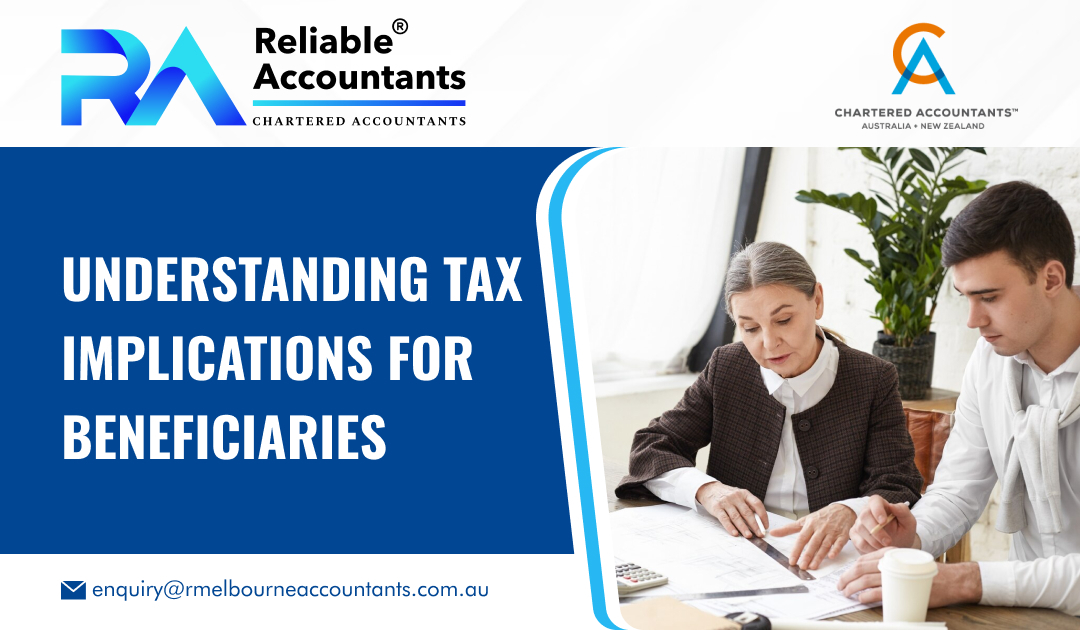Apart from dividing your assets and knowing who should get what, it’s crucial to consider tax implications for how your assets will flow through to your beneficiaries. When assets shift from a deceased individual to a beneficiary of the estate, the impact of the tax will be based on the nature of the asset and the tax characteristics of the beneficiary, like their residency status.
Inheriting cash
When cash moves from a deceased individual to their estate and after that, to a beneficiary, there must not be any direct tax concerns to deal with, supposing that the cash is denominated in AUD.
Inheriting assets
Death is a taxing event. When a change occurs in the ownership of an asset, a capital gains tax event is triggered. However, the tax rules offer relief from CGT when someone passes away. The basic rule is that a capital gain or loss provoked by a death is disregarded unless the asset is transferred to one of the following:
- An exempt entity
- The trustee of a complying super fund, or
- A foreign entity and the asset are not categorised as taxable Australian property.
The exemption applies if the asset shifts to the deceased’s legal personal representative or to a beneficiary of the estate, which is not one of the entities mentioned above. After the asset is transferred to the beneficiary, they will need to handle the tax implications when they sell it.
- Inheriting shares
For instance, you inherit an ASX-listed shared portfolio under your mother’s will. The tax result will be based on whether your mother was an Australian resident for tax purposes when she passed away, and whether the shares were obtained by your mother prior to or after 20 September 1985 (pre-CGT or post-CGT).
If your mother was an Australian resident for tax purposes when she passed away, and the shares were received post-CGT, then the cost base of the shares depends on the original purchase price. That is, the tax rules treat the inherited shares as if you bought them.
If your mother was a resident of Australia when she passed away, and the shares were received pre-CGT, then the cost base of the shares is reset to their market value at the date of death. On the other hand, if your mother was not a resident of Australia when she passed away, then the cost base of the shares depends on their market value at the date of death.
Inheriting property
For instance, you inherit an Australian residential property from your father under his will. For some tax purposes, you are taken to have obtained the property when he died. The rule is that the beneficiaries of the estate inherit the cost base and minimised cost base of the CGT assets owned by the deceased prior to their death, but this is not always the case, especially when it is a matter of pre-CGT properties and a property that was the primary residence of the deceased individual before their death.
Special rules allow some beneficiaries to access a partial or full primary residence exemption on the inherited property. If the house was your father’s primary residence before his death, he didn’t use the home to generate income and was a resident of Australia for tax purposes, then a full CGT exemption might apply if either or both of the following conditions are satisfied:
- The house is sold within two years of the date of death, or
- The dwelling was the primary residence of one or more of the following people from the date of demise until the dwelling was sold out:
- The partner or spouse of the deceased (unless they were separated)
- An individual who had permission to occupy the dwelling under the deceased’s will, or
- The beneficiary who is selling out the dwelling.
For instance, if the house was your father’s primary residence and was liable to the full primary residence exemption when he passed, if you dispose of the house within the 2-year time period, no CGT will apply. However, if you dispose of the house 10 years later, the CGT impact will be based on how the property has been utilised since the date of death of your father.
A two-year time period can be extended in certain circumstances. If your father didn’t live in the property before he passed away, it still might be possible to apply for the full exemption if your father decided to continue treating the home as his primary residence under the ‘absence rule’. If your father was a non-resident of Australia for tax purposes when he passed away, the cost base for CGT purposes depends on the purchase price paid by your father if he obtained it post-CGT.
- Inheriting foreign property
If you are an Australian resident and have inherited a foreign property or asset from an individual who was not an Australian resident just before they passed away, the cost base is taken to be the market value at the time of death.
If a taxable gain increases on sale, then it’s important to consider whether the CGT discount can apply, but the concession will sometimes be less than 50%. If the gain is also taxed overseas, then a tax offset can apply to minimise the amount of tax payable in Australia.

